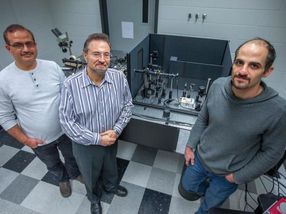Roche and SeqWright Collaborate to Help Elucidate the Underlying Genetic Causes of Heart Disease
Utilizing next generation sequencing and the latest advancements in sequence capture, SeqWright has announced a collaboration with Roche Applied Science and the University of Miami Miller School of medicine. The research focuses on a major study to help identify possible genetic variants associated with dilated cardiomyopathy, a disease of heart muscle. In this collaboration SeqWright used NimbleGen Sequence Capture Human Exome Arrays to enrich over 180,000 exons from DNA samples from individuals affected with dilated cardiomyopathy. SeqWright is sequencing the enriched exons to detect genetic variants within these samples, including single nucleotide polymorphisms (SNP’s) and insertions and deletions. The complete solution from Roche allows targeted re-sequencing of all of the coding exons, called the human exome, representing the portion of the human genome that is transcribed and translated into the myriad of proteins that function within all cells in the human body.
“Sequencing the entire coding portion of the human genome has not been feasible until recent advancements in next generation genomic tools. By being able to efficiently characterize the entire human exome, researchers can accelerate their research by taking the ‘candidate gene’ approach to a completely new level,” stated Fei Lu, M.D., CEO of SeqWright. “It’s truly amazing to see just how fast research has transformed with these tools and I’m proud to see that SeqWright has stayed ahead of the community as we adopt these technologies almost as fast as they are developed.”
This work is part of an ongoing 15 year study of familial dilated cardiomyopathy brought to the Miller School of Medicine in 2007 by Ray Hershberger, MD, professor of medicine and associate chief of the Cardiovascular Division.
Most read news
Topics
Organizations
Other news from the department science

Get the life science industry in your inbox
By submitting this form you agree that LUMITOS AG will send you the newsletter(s) selected above by email. Your data will not be passed on to third parties. Your data will be stored and processed in accordance with our data protection regulations. LUMITOS may contact you by email for the purpose of advertising or market and opinion surveys. You can revoke your consent at any time without giving reasons to LUMITOS AG, Ernst-Augustin-Str. 2, 12489 Berlin, Germany or by e-mail at revoke@lumitos.com with effect for the future. In addition, each email contains a link to unsubscribe from the corresponding newsletter.






















































